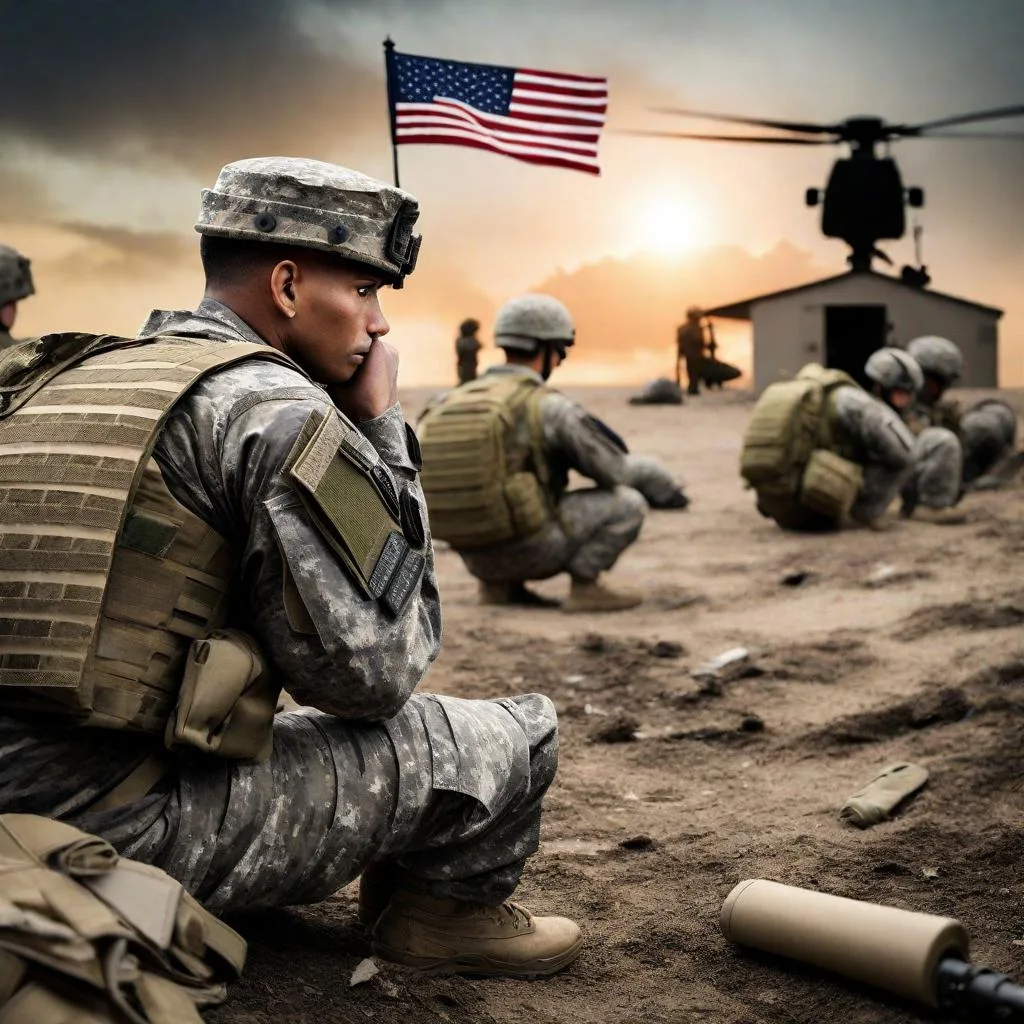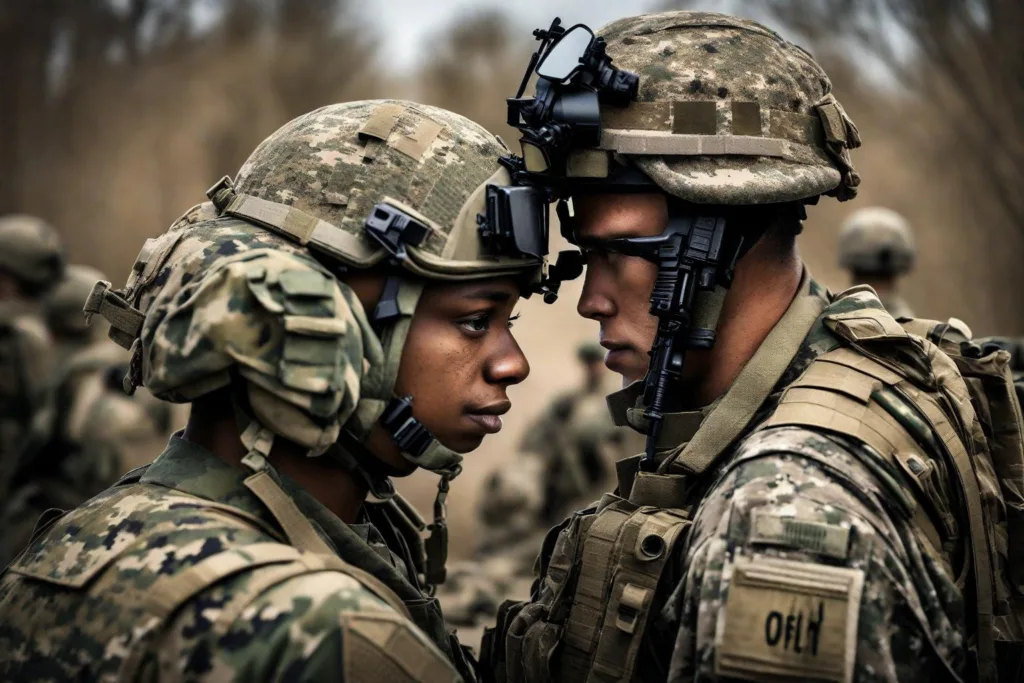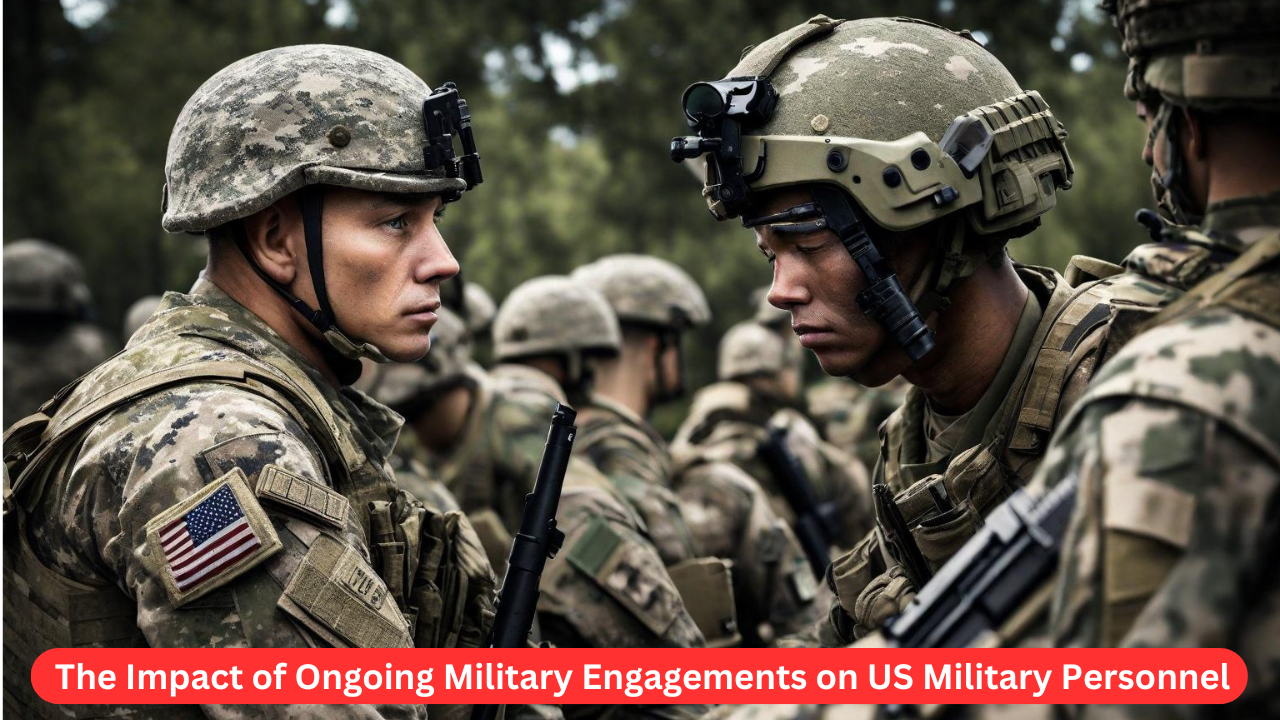The Impact of Ongoing Military Engagements on US Military Personnel: A Call for De-escalation and Mental Health Support

Introduction
The United States has been involved in military engagements across the globe for decades. From the Cold War era to the present day, conflicts in various countries have shaped U.S. foreign policy and military strategy. However, the toll of continuous warfare on military personnel cannot be overlooked. As troops deploy to conflict zones, they face not only physical danger but also significant mental and emotional stress. In this article, we delve into the impact of ongoing military engagements on U.S. service members, explore the roots of their psychological struggles, and advocate for a new approach to conflict resolution.
The Current Landscape
Ukraine and the Arab World
The ongoing conflict in Ukraine and Russia has drawn international attention and concern. The U.S. response has included military aid to Ukraine, diplomatic efforts, and economic sanctions against Russia . Simultaneously, the Arab world faces its challenges, with regional tensions, civil wars, and proxy conflicts. The U.S. has been involved in various capacities in these conflicts, providing support to allies and combating terrorism.
The Psychological Toll of US Military
Trauma and Mental Health
The impact of war on US military personnel is profound. Soldiers experience trauma, loss, and exposure to violence, leading to mental health consequences. Depression, anxiety, and post-traumatic stress disorder (PTSD) are common effects. The toll extends beyond the battlefield; even those consuming war-related content through social media can develop psychological trauma. The long-term effects of trauma are significant, affecting not only individual well-being but also overall force readiness.
The Struggle Within US military
US Military returning from deployments often face challenges like homelessness and high suicide rates. The strain on mental health resources is immense, and the stigma surrounding seeking help persists. While civilians within conflict zones can process emotions through social networks, soldiers often lack such immediate support. The US Military. veteran population grapples with the lingering impact of war, emphasizing the need for comprehensive mental health care .

Challenges Faced by Returning US Military
let’s delve deeper into the challenges faced by US Military returning from deployments and the critical need for comprehensive mental health care:
US military
1. Relating to Civilians:
- Veterans returning from conflict zones often struggle to connect with civilians who lack a firsthand understanding of their experiences.
- Families may have established new routines during the deployment, making reintegration complex.
2. Transitioning to Civilian Life:
- Veterans may have never applied for civilian jobs or been interviewed outside the military context. They must translate their military skills into civilian terminology for resumes.
- Catching up, learning new skills, or adjusting to new positions in existing jobs can be challenging.
3. Navigating a New Social Landscape:
- Outside the military, there’s no clear chain of command or hierarchy. Veterans may feel lost, and unsure of where to seek help.
- Mundane tasks like buying clothing, and groceries, and navigating civilian shopping can overwhelm them.
4. Subtle Nuances in Social Interactions:
- Adjusting to civilian conversations and workplace lingo can be unfamiliar.
- Losing the immediate support group of fellow troops adds to the emotional strain.
5. Emotional Adjustments:
- Coping with the loss of friends who died overseas.
- Feeling isolated and alone among people who don’t understand their experiences.
- Challenging family relationships and dealing with memories of deployment.
- US Military
Mental Health Impact of US Military
1. Physical and Psychological Health Conditions:
- Veterans often suffer from overlapping disorders such as PTSD, substance use disorders, depression, and symptoms related to mild traumatic brain injury (TBI).
- Combat exposure and warzone deployments contribute to these health challenges.
2. Stigma and Mental Health Care:
- The stigma surrounding mental health persists, discouraging veterans from seeking help.
- Military culture often promotes stoicism and self-reliance, making it harder to admit vulnerability.
3. Suicide Risk and Homelessness:
- Veterans experiencing homelessness have a higher risk of suicide.
- Financial instability, unemployment, and criminal justice involvement exacerbate the situation.
The Urgent Need for Comprehensive Care for US Military
1. VA Mental Health Services:
- The Veterans Health Administration (VHA) offers mental health resources, treatment options, and support.
- However, barriers like stigma, lack of awareness, and transportation difficulties persist.
2. Facilitators for Help-Seeking:
- Dispelling stigma through awareness campaigns.
- Involving veterans in mental health care planning.
- Improving accessibility and understanding from healthcare staff.
3. Research and Longitudinal Evidence:
- Further research is needed, especially considering female veterans and other nations’ contexts.
Rethinking U.S. Engagement in the Context of US Military
Multilateral Diplomacy
The U.S. must reinvigorate its commitment to multilateralism. The United Nations (U.N.) remains a crucial mechanism for global security. Despite the Security Council’s limitations, U.S. leadership can enhance the U.N.’s effectiveness in addressing peace and security challenges. By rebuilding the case for U.S. leadership within the U.N. system, we can adapt it to reflect the realities of the 21st century.
Escalation and De-escalation
Russian sources suggest that escalation and de-escalation strategies are critical considerations in conflict scenarios. The U.S. should explore options for substantive changes in the U.N. Security Council membership, promoting collective goodwill among member states. Additionally, addressing the plausibility of limited nuclear war and denying an “escalate-to-deescalate” doctrine are essential steps.
Conclusion
As the U.S. navigates its role in global conflicts, it must prioritize the well-being of its military personnel. A comprehensive approach involves not only strategic adjustments but also robust mental health support. By rethinking engagement, advocating for de-escalation, and investing in mental health resources, the U.S. can better serve its troops and contribute to a more peaceful world.
Note: This article is based on research and expert opinions, and it aims to raise awareness about the challenges faced by military personnel. It does not replace professional advice or mental health services.
More Interesting Articles
The Impact of Artificial Intelligence App on the Working Class: Navigating the AI Revolution
Dive into the Intriguing Lives of the Top 10 Wealthiest Women Billionaires on Earth
The Richest People in the World in 2024
Millionaire- The World’s Richest Metropolises: Where Millionaires Flourish
SBI Revamps all SBI Debit Card Charges: What You Need to Know
The Growing Popularity of Organic Fertilizers: A Sustainable Revolution
Billionaire in India – Mumbai Emerges as Asia’s New Billionaire Capital, Surpassing Beijing
Sodium Nickel Chloride Battery: A Sustainable Alternative to Lithium
America’s Dollar Tree Stores: A Struggle for Survival
Telegram web: Judge in Spain Orders Nationwide Suspension of Telegram
8 Business Trends to Get Ready for in 2024
Instagram Down Faces Global Outage: Users Disconnected and Disappointed
Generative AI and the Evolution of the Best Search Engine – Google Search
Amazon sale’s Big Spring Sale 2024: Everything You Need to Know!
Reddit IPO Values Social Media Firm at $6.4 Billion in Share Sale
Generative AI and the Evolution of the Best Search Engine – Google Search
Top 7 Remote Work Software for Individuals and Businesses
Lamborghini Huracan Tecnica: A Fusion of Excellence.
Apple AI News- Apple’s Latest AI Advancement Revolutionizes the
Fintech Companies Ecosystem- India and ADB Ink $23 Million Loan Pact to Enhance
SpaceX Starship: A Galactic Leap in Space Exploration
Major Factors Risk Aviation Fuel Cost Derailing Net-Zero Sustainability Goal
Revolutionizing Wind Energy: The World’s Largest Plane Set to Supercharge
Electric Vehicle Technology Companies Euphoria Fades: Automakers Reassess
Market research analyst- Key Lessons for Businesses From Google’s Conversational
Digital divide-Satellite Firms Form Unlikely Alliances: The Dawn of Seamless Multi-
Sony Corporation news – Innovative Leap into NFTs with ‘Super Fungible Tokens’
Discover more from News 24 Media
Subscribe to get the latest posts to your email.


